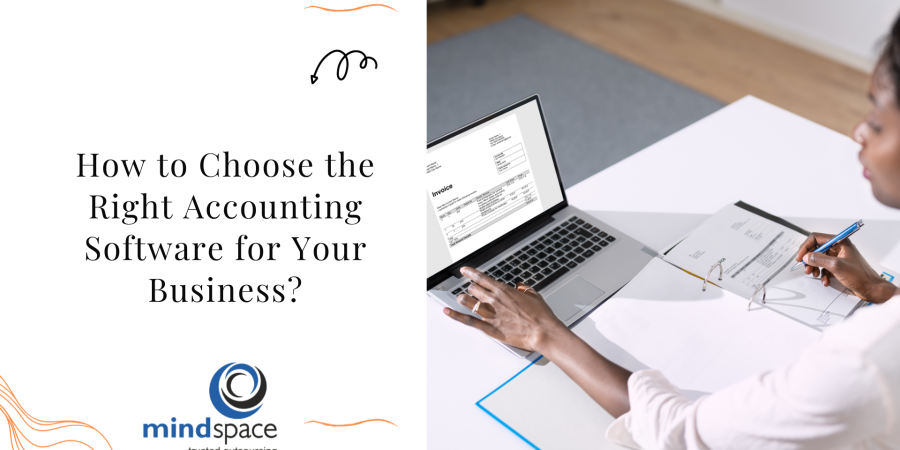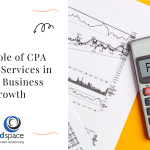How to Choose the Right Accounting Software for Your Business
Introduction
Choosing the right accounting software is a critical decision for any business. The right software can streamline your financial processes, ensure accurate record-keeping, and provide valuable insights that drive your company’s success. However, with so many options available, it can be challenging to find the software that best fits your business needs. This guide will help you navigate the selection process, ensuring you choose the accounting software that aligns with your business requirements and goals.
Must Read: Reasons why you need CPA Services for your small business
Understanding Your Business Needs
Before diving into the features and benefits of different accounting software, it’s essential to understand your business’s specific needs. Consider the following factors:
Business Size and Complexity
The size and complexity of your business will play a significant role in determining the right accounting software. Small businesses may require simple software with basic features, while larger companies with complex operations might need more advanced solutions.
Industry-Specific Requirements
Some industries have unique accounting needs. For instance, if your business operates in the Software as a Service (SaaS) industry, you’ll need software that handles accounting for software as a service, including subscription billing, revenue recognition, and compliance with industry-specific regulations.
Budget
Your budget is another critical factor. While it’s essential to find software that meets your needs, it’s also crucial to consider the cost. There are options available for all budgets, from basic, affordable tools to comprehensive, high-end solutions.
Suggested Read: Best Time to Have Finance and Accounting Outsourcing Services for Your Business
Top Features to Look for in Accounting Software
When choosing accounting software, look for features that will enhance your financial management and support your business growth. Here are some key features to consider:
Invoicing and Billing
The software should allow you to create and send invoices, track payments, and manage billing cycles. This is especially important for businesses that rely on recurring billing, such as SaaS companies.
Expense Tracking
Effective expense tracking is essential for managing your finances. The software should allow you to record, categorize, and track expenses easily.
Financial Reporting
The ability to generate detailed financial reports, such as income statements, balance sheets, and cash flow statements, is crucial for understanding your business’s financial health.
Integration with Other Tools
Your accounting software should integrate seamlessly with other business tools you use, such as CRM systems, payroll software, and e-commerce platforms. This integration helps streamline operations and reduce the need for manual data entry.
User-Friendly Interface
Ease of use is a significant factor, especially for small businesses with limited accounting expertise. The software should have an intuitive interface that makes it easy to navigate and use.
Suggested Read: Cash Basis Accounting vs. Accrual Accounting
Popular Accounting Software Options
There are many accounting software options available, each with its strengths and weaknesses. Here are some of the most popular choices:
QuickBooks
Accounting Software QuickBooks is one of the most widely used accounting software solutions, especially among small businesses. It offers a comprehensive set of features, including invoicing, expense tracking, payroll management, and financial reporting. QuickBooks also offers cloud-based options, allowing you to access your financial data from anywhere.
Xero
Xero is a cloud-based accounting software that’s particularly popular among small businesses and startups. It offers features like invoicing, expense management, and bank reconciliation. Xero is known for its user-friendly interface and seamless integration with other business tools.
FreshBooks
FreshBooks is another popular choice for small businesses, particularly those in service-based industries. It offers time tracking, invoicing, and expense management features. FreshBooks is easy to use and provides excellent customer support.
Zoho Books
Zoho Books is a cost-effective accounting software solution that offers a wide range of features, including invoicing, expense tracking, and financial reporting. It integrates seamlessly with other Zoho products, making it an excellent choice for businesses already using the Zoho suite of tools.
Accounting Software Alternatives to QuickBooks
While QuickBooks is a leading choice, several accounting software alternatives to QuickBooks might better suit your business needs:
Wave Accounting
Wave Accounting is a free accounting software solution that offers essential features like invoicing, expense tracking, and financial reporting. It’s an excellent option for small businesses on a tight budget.
Sage 50cloud
Sage 50cloud is a robust accounting software that offers advanced features like inventory management, cash flow forecasting, and industry-specific tools. It’s ideal for businesses that need more than just basic accounting features.
Kashoo
Kashoo is a simple, cloud-based accounting software designed for small businesses and freelancers. It offers basic features like invoicing, expense tracking, and financial reporting at an affordable price.
Suggested Read: Common Outsourcing Business Tasks To Help You Grow Your Business
The Role of Accounting Software Services
Choosing the right accounting software is just the first step. You’ll also need reliable accounting software services to ensure you get the most out of your chosen solution. These services include setup, customization, training, and ongoing support. Many software providers offer these services as part of their package, ensuring you have the help you need to implement and maintain your accounting system effectively.
Making the Final Decision
Choosing the right accounting software for your business is a critical decision that requires careful consideration of your needs, budget, and long-term goals. Start by identifying the core features essential for your business, then evaluate different software options based on those criteria.
If you’re a small business, you might find accounting software for small businesses like QuickBooks or Xero to be the best fit. If you’re in the SaaS industry, you’ll need software that supports accounting for software as a service. And if you’re looking for alternatives to QuickBooks, options like Wave Accounting or Sage 50cloud may be worth exploring.


